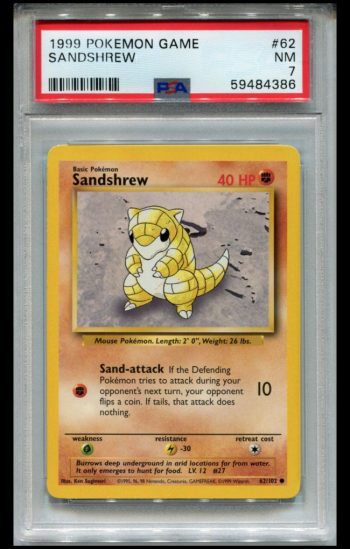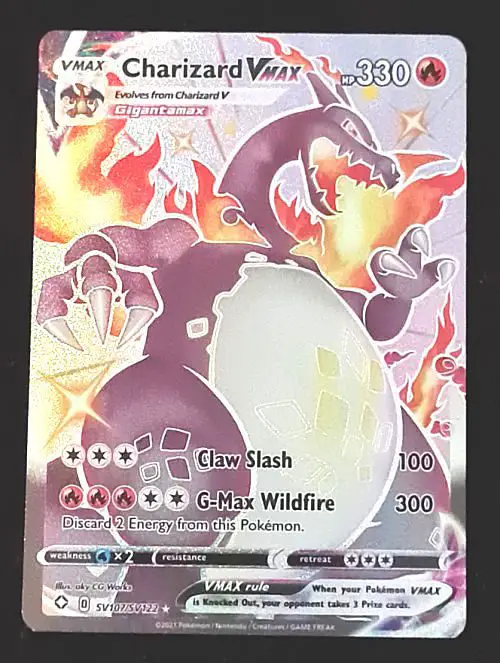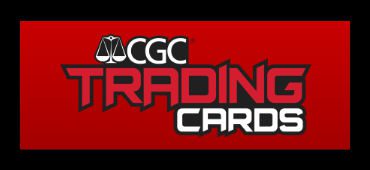What are Pokémon Graded Cards?
 Pokémon graded cards are cards that have been assessed for authenticity, print quality and condition by a private company and given a score (usually out of 10).
Pokémon graded cards are cards that have been assessed for authenticity, print quality and condition by a private company and given a score (usually out of 10).
Most companies have specific checks they make including – how centred the card is, the state of the corners, the sharpness of the card edges as well as the surface of the print.
Companies use a 10-point scale which may or may not include half scores.
10 = Gem Mint
9 = Mint
8 = Near Mint-Mint
7 = Near Mint
6 = Excellent-Mint
5 = Excellent
4 = Very Good-Excellent
3 = Very Good
2 = Good
1.5 = Fair
1 = Poor
It is worth noting that a 10 score with one company may not be the same as a 10 score with another as each use slightly different criteria to reach a final score.
Once graded, cards are encased in a sealed perspex case, known as a slab. The top of the case contains the grading companies’ name and official grading score. Each graded card is also given a unique number enabling the card to be validated and valued on the grading company website.
Graded cards generally fetch a higher price than ungraded cards. A graded card with a perfect score will be worth considerably more than one with a lower grade score.
What are the Best Cards to get Graded?
Getting a card graded is very much like making a financial investment. It needs to be thought about, the pros and cons weighed up and the right card selected for grading.
While it is possible to submit any card to be graded, it is not financially worth grading a card unless it will significantly increase that card’s value. It can be helpful to think about what cards you would be prepared to pay more for if they were graded.
Generally speaking the best cards to get graded fall into two categories:
Older, vintage cards that, despite their age, have been well looked after and remain in excellent condition. Due to the fact that these are long out of print their value is already increasing year by year. Encased in a slab with a good grade, the value of these cards will dramatically increase. The 1999 Sandshrew card above is a good example.

Newer chase cards or those with fan-favourite artwork / characters. These cards tend to be in high demand and are worth more than a regular art card. It is also pretty certain that they will remain popular and increase in value over time, more so if graded. The Charizard card from Shining Fates is a prime example.
Where can I get my cards graded?
There are many companies that specialise in grading trading cards. During the Pokémon boom of 2020 / 2021, graded cards became much more popular and the numbers of companies grading cards increased.
However, although there are numerous companies grading cards, some are more prestigious than others. For example, PSA graded cards generally fetch a higher price than cards graded by other companies.
All companies have specific requirements with regard to registering, completing submission form, packing, shipping and receiving your graded cards and these will be stated on their websites. It is essential to follow these instructions carefully. Prices also vary from company to company.
The top three companies for graded cards are generally acknowledged to be PSA, Beckett and CGC . These companies are all based in the United States. If you are outside the United States, you can ship direct to the United States but postage and insurance costs are likely to be high. There are also a number of authorised and non-authorised third party sites that ship to these companies in bulk.

Professional Sports Authenticators (PSA) is the largest card grading company in the world. Founded in 1991, it is based in the United States but has a branch in Japan. It only grades cards in English or Japanese.
The PSA website gives clear instructions on how to submit your card(s) for grading. Prices start at $30 per card for cards with a value of less than $499 and the turnaround time is 90 – 120 days.
The two largest companies working with PSA, Ludkins Collectables and Graded Gem have currently suspended services.

Beckett Grading Services (BGS) declares itself ‘The most accurate and trusted grading in the collectibles industry’. It was founded in 2001 and is based in the United States.
Unlike other companies Beckett give a mark out of 10 for centring, corners, edges and surface then use an algorithm to get a final score.
Cards graded pristine 10 are given a black label, those graded 9.5 and 10 have a gold label, while cards graded 9 or below have a silver label.
The Beckett website gives clear instructions on how to submit your card(s) for grading. Prices start at $25 per card if subgrades are not required or from $35 for cards with subgrades. Turnaround time is 90 – 120 days.
Black Label Grading state they are an official UK and Europe intermediary for Beckett.

Certified Guaranty Company (CGC) was founded in 2000 and is based in the United States. Its website states that it ‘uses a proven, multi-step process that is designed to ensure accuracy, consistency and integrity while safeguarding your valuable cards’.
Cards are also examined by a team of examiners who then decide a final score.
The CGC website gives a lot of information about the whole process and is very clear to understand. Prices start at $15 per card if more than 50 cards are being submitted or $25 for less than 50. Standard turnaround time is 20 – 30 days.
Dan’s Pokéstop states it is an authorized UK dealer for CGC.









